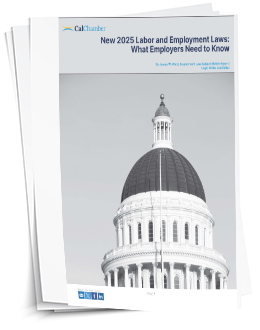Drug and Alcohol Testing Policy - California Drug Testing Laws
Employee Drug and Alcohol Testing in the Workplace
Although drug testing of employees is allowed in California, it may be justified only in very limited and strictly defined circumstances.
What is the drug and alcohol testing policy in California?
In California, drug and alcohol testing policies are governed by a balance between employer interests and employee privacy rights. Key aspects include:
Pre-Employment Testing
California drug and alcohol testing laws allow an employer to require a "suspicionless" drug test as a condition of employment after a job offer is made but before the employee begins working. However, pre-employment testing is complicated when it comes to marijuana/cannabis. California law prohibits discrimination against applicants and employees for their off- duty, off- site cannabis use. Employers can still conduct preemployment testing, but they must use valid tests that look only for the psychoactive compounds in cannabis.
Routine or Random Drug Testing
You may not require employees to submit to random drug testing, except under certain narrow circumstances.
Reasonable Suspicion Testing
The courts have generally been supportive of requiring alcohol or drug testing in the workplace based on specific objective facts and rational inferences drawn from those facts that indicate drug or alcohol abuse. However, these facts and inferences may fall short of clear probable cause. The courts have upheld the testing of employees after a serious accident.
Public Employers and Drug Testing
Under California Supreme Court precedent, public agencies cannot conduct drug testing of current employees who are applying for promotions but can require pre-employment drug testing of applicants.
Private Employers and Drug Testing
In the case cited above, however, the court also considered drug testing and the right to privacy under the state Constitution in its decision, which would apply to private employers.
Local Drug Testing Ordinances
San Francisco enacted a local ordinance relating to subjecting employees to drug testing. You may want to consult legal counsel before drug testing employees in San Francisco.
Transportation Industry Alcohol and Drug Testing
State and federal laws impose strict requirements on employers and operators engaged in commercial transportation regarding alcohol and drug testing. Failure to follow these regulations can result in significant penalties for both employers and individual operators.
Disability Discrimination and Drug Abuse
The federal Americans with Disabilities Act (ADA) and the California Fair Employment and Housing Act (FEHA) do not protect individuals who currently use drugs or abuse alcohol. However, these laws do protect persons who are former abusers of alcohol or illegal drugs and who have been successfully rehabilitated either through a supervised rehabilitation program or through their own program, and who no longer use illegal drugs or abuse alcohol.
Drug or Alcohol Rehabilitation
If you have 25 or more employees, you must reasonably accommodate any employee who volunteers to enter an alcohol or drug rehabilitation program, provided the reasonable accommodation does not impose an undue hardship on your business.
Drug-Free Workplace Policies
Whether or not your employees come under the requirements of state or federal drug-free workplace regulations, you may choose to create a drug-free workplace policy and/or include a drug-free workplace provision in your employee handbook. Proposition 64, the Adult Use of Marijuana Act, legalized the recreational use of marijuana for adults 21 years old and over. California also allows medical marijuana use with a prescription.
Even though recreational and medical marijuana are now legal, California employers still maintain the right to enforce a drug-free workplace policy, including prohibiting marijuana. If you include a drug-free workplace policy, there are a set of guidelines that can help you keep the policy fair, clear and consistent.
California Drug-Free Workplace Act
If you contract with or receive grants from the state of California, California's Drug-free Workplace Act of 1990 requires you to certify that you provide a drug-free workplace.
Federal Drug-Free Workplace Act
If you enter into a federal contract for the procurement of property or services valued at $100,000 or more, or if you receive any federal grant, you must follow the regulations of the Drug-Free Workplace Act of 1988.
Wrongful Termination and Drug Testing
California courts have developed at least three wrongful termination theories. Employees who have been terminated for refusing to submit to drug testing can use these theories as a basis for lawsuits.
Related Resources
HRCalifornia subscribers have access to several tools and services that help those who manage human resources to work through drug and alcohol-related issues, including:
Last Chance Agreement Checklist for Employee with Substance Abuse Problem
Once productive and valuable employees may have developed recent substance abuse-related performance problems and may have failed to correct such issues. Use this checklist when creating a Last Chance Agreement to give these employees one more attempt at improving their performance before termination.


